Answering Obama’s call: Tigers in Washington
The economy may be in the dumps and Americans may be in a funk, but for a sizable band of Princetonians, the start of the Obama administration has been exhilarating.
“There is an electricity,” said Dallas C. Brown III ’78, a career military officer who was named chief operating officer for national protection and programs at the Department of Homeland Security.
More than 20 Princeton alumni and faculty members have taken positions in the new administration or were awaiting Senate confirmation as of late April. The list includes two Cabinet positions, director of the Office of Management and Budget and administrator of the Environ-mental Protection Agency. In recent interviews, several alumni reflected on their initial Washington experiences.
PETER ORSZAG ’91, director of the 500-person Office of Management and Budget, said he never expected the economic situation to become as dire as it is today. But he added that it presents an opportunity, and quoted from a saying by Theodore Roosevelt that he put up on the wall in his office: “Far and away the best prize that life has to offer is the chance to work hard at work worth doing.”
Orszag cites Princeton economists Alan Blinder and Alan Krueger (who has been nominated as assistant Treasury secretary) as mentors in his fast-rising career. He said he wavered a bit before taking the OMB job, worrying about the impact on his family. But ultimately, he concluded that “when the president asks you to serve, it’s hard to say no.”
A specialist in health-care reform, Orszag sees that issue — beyond the immediate economic-stabilization efforts — as most important for the nation’s future, in part because the growing price tag threatens to crowd out spending for other areas such as higher education.
There have been lesser crises to deal with. Finding wood stacked in the fireplace in his office in January, “and the building being a little drafty,” Orszag said, “we decided to start a fire. I lit a piece of paper to make sure that the smoke went up the chimney — it did. So I lit the fire and we warmed up the room. What we didn’t know is that the Secret Service had capped the chimney at the top of the building. All of the smoke was gathering in a fourth-floor office. The fire department came, we put out the fire, and, needless to say, I haven’t lit one since.”
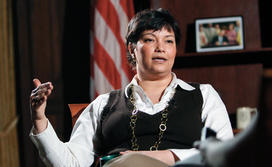
LISA JACKSON *86, the Environmental Protection Agency administrator, and LISA HEINZERLING ’83, EPA’s senior counsel for climate-change issues, are working to steer the agency in a new direction.
“Our No. 1 goal is to restore the American people’s trust in the EPA as the institution they can turn to with confidence when they want to be reassured their children are breathing clean air and drinking clean water,” Jackson said. “I also want it to be a place that represents an attractive and compelling alternative to a young scientist who just graduated from Princeton and is looking for a career, and a calling, that’s a little different than, say, investment banking — not that there’s anything wrong with investment banking.”
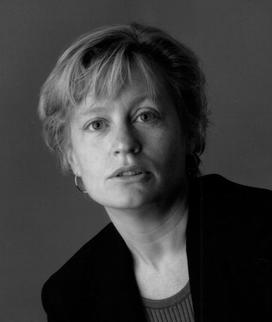
Heinzerling, a longtime law professor at Georgetown University, was invited to join the Obama transition team after helping to write the winning briefs in a landmark 2007 Supreme Court case on the regulation of automobile greenhouse-gas emissions. At Princeton she majored in philosophy, which she credits with teaching her how to analyze ambiguities and grapple with broad moral and policy issues.
“I consider myself a pretty hard worker,” said Jackson, who previously served as New Jersey’s commissioner of environmental protection and chief of staff to Gov. Jon Corzine. “But these past three months under President Obama, I’ve worked harder than I ever have in my life.”
The nation’s economy unquestionably has become job one for many administration officials, and ADAM FRANKEL ’03, a speechwriter for the president, said that economic topics “take up the bulk of what we write about.”
Frankel said he typically writes three to four speeches a week, unless he’s involved in crafting a particularly im-portant one. He usually works directly with the president at the beginning of the process and then once again at the end.
“It’s a real collaboration,” said Frankel, who helped write a memoir for Ted Sorensen, the speechwriter and confidant of President John F. Kennedy. Obama, Frankel said, “is such a gifted writer and cares so much about words. I’m under no illusions about who’s the best speechwriter.”
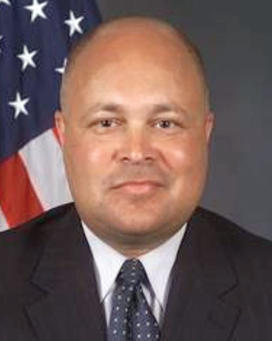
DALLAS C. BROWN III ’78 joined ROTC in the wake of the Vietnam War, at a time when it was quite unpopular among students on campus. But the experience profoundly shaped his future career, both directly — he rose to colonel in the Army, including stints in the Middle East, Europe, and at the Pentagon — and indirectly, by nurturing his admiration for public service.
For Brown, a key challenge for the DHS is that it is a collection of government entities that has been unified for just a few years and only now is developing an internal culture. Brown’s own portfolio spans such far-flung areas as cybersecurity, biometrics, and the protection of traditional infrastructure such as bridges, highways, and ports.
“With all of our problems and faults through the centuries, and with our economic problems now, America is a wonderful country, and we all owe it to ourselves to give a little something back,” he said. “I encourage young people to do that.”
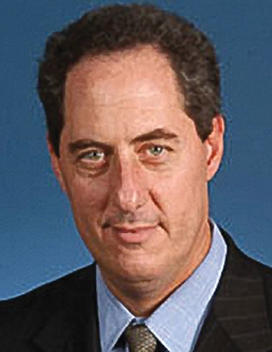
Most of the Princetonians in senior administration posts played some role in the campaign. MICHAEL FROMAN ’85, the deputy national security adviser, has deeper ties: He attended Harvard Law School with Obama.
“The biggest challenge for me personally has been dealing with several urgent issues all at the same time, while also transitioning a government to a new administration and building the staff necessary to deal with these issues,” said Froman, who joined the administration after serving as a top executive at Citigroup. “It’s the proverbial drinking from a firehose.”
Like many other alumni in the administration, Froman earned a degree from the Woodrow Wilson School, and he, like others, praised the school for preparing its graduates for positions in the federal government. “The policy conferences and task forces were terrific preparation for the process I lead now at the National Security Council,” he said.
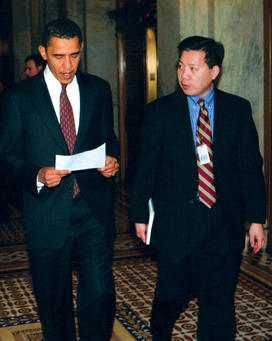
As a self-described policy generalist, CHRIS LU ’88 was a natural fit for Cabinet secretary, with responsibility for making sure that the White House and Cabinet agencies are on the same page on policy and message. “A good day for me is when the White House and the Cabinet are functioning like a well-oiled machine,” said Lu, who like Froman attended Harvard Law School with Obama.
“No matter how hard I’ve worked in my past jobs, I’ve never worked harder than in the White House,” Lu said. “I was prepared for a very intense work environment, but it still surprised me. The work never ends.”
At Princeton, Lu said, some of the best preparation came from working for the late Larry DuPraz, the legendarily crusty, tough-love production chief at The Daily Princetonian.
“My best education was at the Prince,” Lu said. “It gave you the ability to write and analyze issues very quickly, under deadline.” Referring to Obama’s sometimes-volcanic White House chief of staff, Lu said that “working for Larry DuPraz certainly prepared me for working with Rahm Emanuel.”


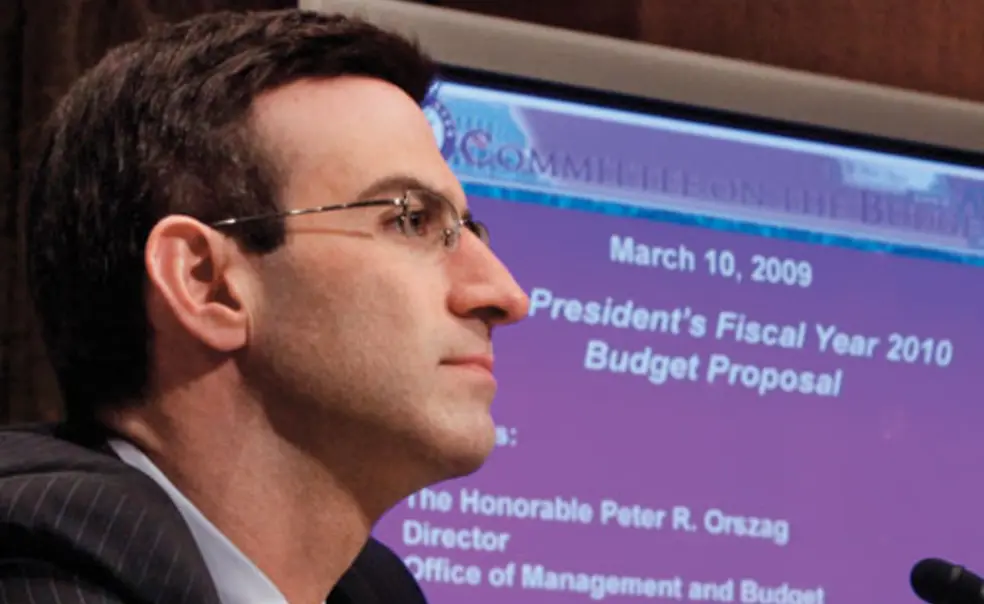
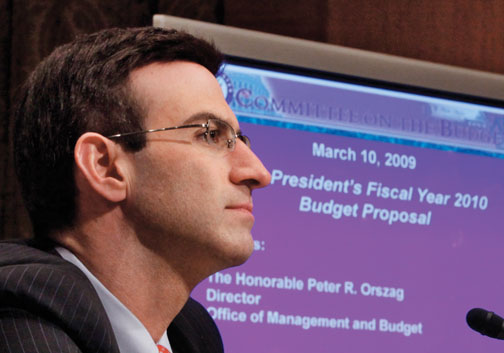
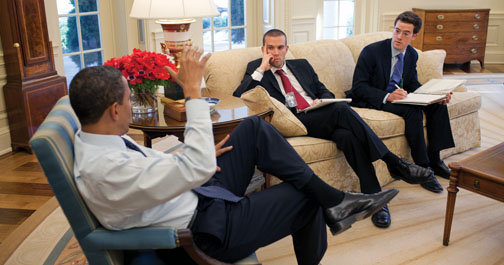









No responses yet